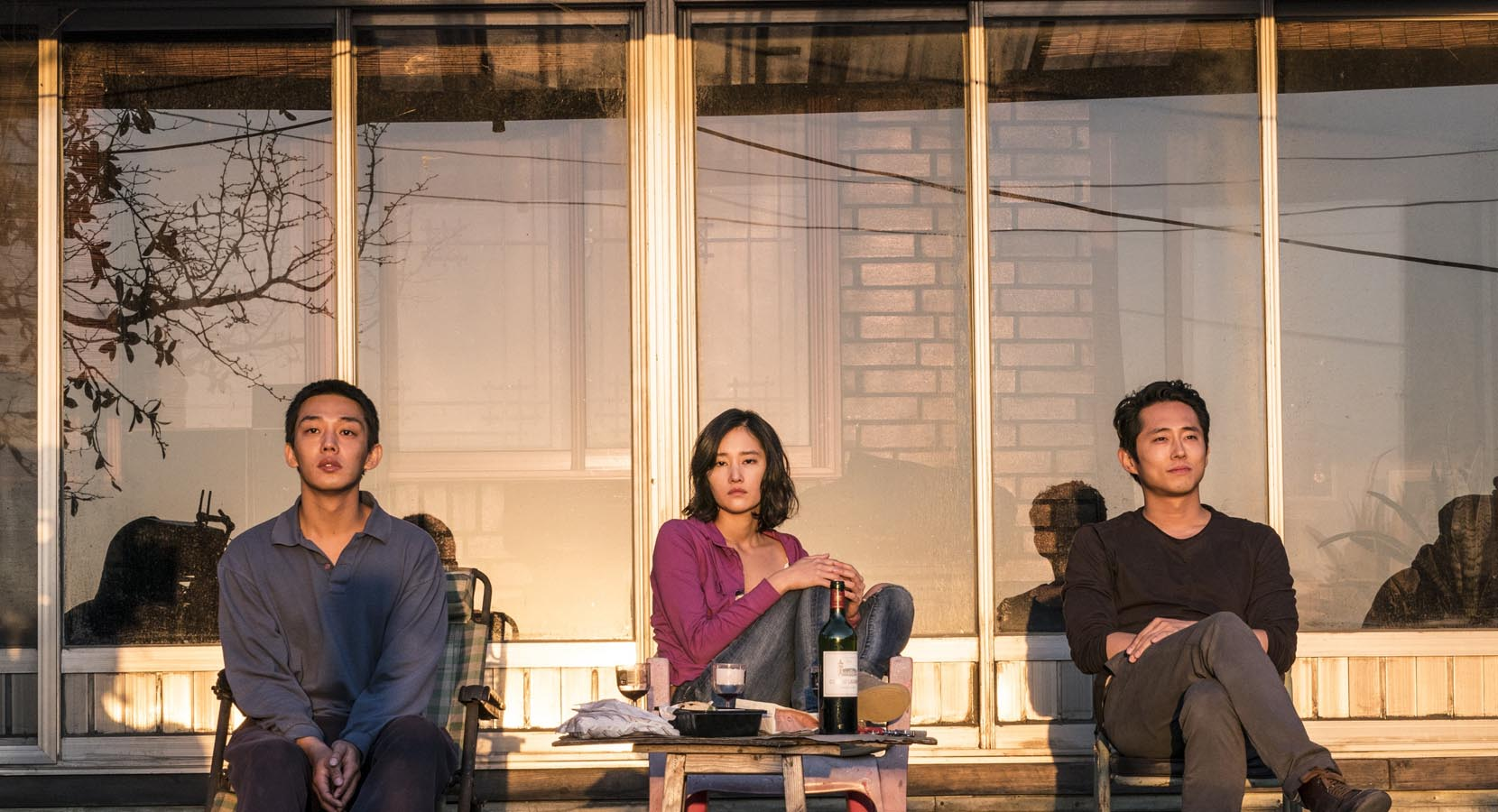A Second Look at Burning

This year’s jury at Cannes may have overlooked Lee Chang-dong’s Burning, but the critics were practically ecstatic. As noted in our first round of reviews, the film chalked up the highest score ever in the critics’ poll that Screen conducts at the festival each year, and the International Federation of Film Critics (FIPRESCI) awarded Burning its top prize. The film was a box-office hit when it opened in South Korea in the spring, and it has now returned to the Film Society of Lincoln Center, where a few weeks ago the film screened as part of the New York Film Festival. Burning will be released in Los Angeles on Friday before opening wider across North America next week, so now is a fine time for a look at the second wave of critical response.
Based on Haruki Murakami’s short story “Barn Burning,” whose title references a story by William Faulkner, Burning’s narrative is revealed through the eyes of Jongsu (Yoo Ah-in), an aimless introvert with literary ambitions who falls for a childhood friend, Haemi (Jun Jong-seo). She takes off to Africa on a journey of self-discovery and returns with Ben (Steven Yeun), who fancies himself a sort of contemporary Gatsby, albeit one with a penchant for arson. “Lee is a master of pacing,” wrote David Bordwell in a dispatch from Vancouver a couple of weeks ago, “and the deliberateness of the film delicately turns a romantic drama into a critique of entitled lifestyles and then into a psychological thriller.”
Most reviewers are in agreement with Bordwell with regard to Lee’s formal prowess. In the cover story of the current issue of Film Comment (not online, unfortunately), Andrew Chan delves into the specifics of Lee’s talents, first establishing that Lee “has begun to revel in the pleasures of genre, and with his two previous masterpieces, Secret Sunshine (2007) and Poetry (2010), he figured out how to make melodramas with sharp teeth and irresistible momentum.” In Burning, which runs well over two hours, the “pacing may seem languorous and the direction aimless, but repetition creates a counter-rhythm of inexorable dread.”
For some critics, though, craftsmanship can take Lee only so far. Writing for Artforum, Nick Pinkerton grants that, “yes,” Burning “is intricately detailed, scrupulous in construction, studied in its careful balance of intimacy and distance, attractively timely, and altogether ‘adequately excellent,’ to borrow a piece of faint praise coined in very different circumstances by H. P. Lovecraft’s ex-wife. But a film with such a diffident, often passive protagonist must generate its tensions and attractions elsewhere—memorable supporting players, a tactile atmosphere, a complex sense of the social sphere, an emphatic emotionalism—and Burning, for all its accretion of portentous minutiae, manages this only sporadically.”
Others have raised objections to Burning on thematic grounds. Girish Shambu was one of the first to sound an alarm when he tweeted from Toronto: “No amount of formal and narrative assurance can make up for the fact that I’m tired of movies about male pathology. I’ve probably seen 1000+ of these in my life—and I’m done. No more.” In his review for 4Columns, Leo Goldsmith elaborates, noting that male insecurity is a theme that’s “especially tired within the world of contemporary Korean cinema, which, since its reemergence in the mid-1990s, has been obsessed with masculinity as something imperiled, as something to be mulled over, as something to be either challenged or fortified—or challenged, then fortified. The sadistic misogyny of turn-of-the-millennium ‘Asia Extreme’ films like Kim Ki-duk’s The Isle comes to mind, as does Hong Sangsoo’s endless, but at least evolving, parade of sad-sack pseudo-artist losers. Not for nothing was one of the first major scholarly studies of new Korean cinema, by Kyung Hyun Kim, titled The Remasculinization of Korean Cinema (2004).”



